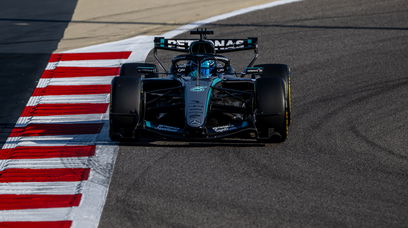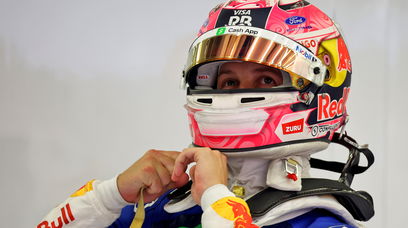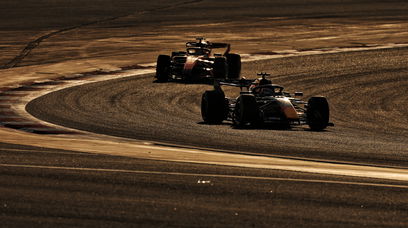Formula 1 and Volkswagen Group brands have long had on-off relationships. Apart from Porsche's sixties, eighties and nineties forays - the first with their victorious own car, the second as a contract engine supplier to the dominant McLaren team and the third a disastrous fling with Arrows - the diverse German automobile manufacturer were also tipped to enter in 2014 under either their VW or Audi brand. Indeed, high-ranking technical managers are said to have attended engine working group sessions ahead of the introduction of F1's current hybrid power units, but then-chairman Ferdinand Pïech is said to have scuppered the plans over the sport's revenue and governance structures, coupled with his intense personal dislike for F1 tsar Bernie Ecclestone's ways. Porsche Motorsport, though, built a concept engine to F1 regulations during the evaluation period, then successfully applied the lessons learned in the World Endurance Championship, winning three each Le Mans 24 Hour classics and driver and manufacturer titles with a V4 hybrid power unit designed by former Cosworth F1 engine engineer Alex Hitzinger. Team boss was current McLaren Team Principal Andreas Seidl. However, Piech retired in early 2015, and soon thereafter the VW board again tabled an F1 project, with former Ferrari Stefano Domenicali team boss charged with overseeing the project; plans were well advanced and within seven days of being formalised when 'Dieselgate' erupted, putting a stop to a partnership or even purchase of at least one team, with Red Bull and/or Toro Rosso both high on VW's shopping list. Project killed off, Domenicali was transferred to head up Lamborghini - an Audi subsidiary - from whence he was recruited by F1's commercial rights holder Liberty Media as CEO. Various sources are adamant that the highest priority set by his Liberty paymasters was to woo a VW Group company into F1, preferably as a team, but engine supplier would be a good consolation prize. Forget not that Renault's CEO, Luca de Meo, and Williams Team Principal Jost Capito held top positions at Seat and VW respectively - the former bringing high-ranking personnel with him to the French company, while the latter was the brand's serial WRC-winning Motorsport Director - so various touchpoints already exist.
F1's push to attract the VW Group
Once in office, Domenicali wasted little time in tapping former colleagues, and in July 2021 Markus Duesmann and Oliver Blume, respectively the Audi and Porsche CEOs, attended an F1 engine summit called by the FIA/F1 during the Austrian Grand Prix. The target date for the new engine formula was pushed out a year already to 2026 to accommodate potential newcomers who may otherwise have been put off by shorter timelines. Further meetings were held during the British and Italian Grand Prix weekends, with representatives from both brands attending and actively participating – signifying some serious intent. During these talks, the VW delegation insisted that F1 drop its horrifically expensive and complex MGU-H exhaust energy recovery systems, commit to fully sustainable fuels and impose engine budget caps as a precursor to further talks. Despite some initial opposition to dropping the MGU-H - primarily from Mercedes - unanimous agreement on all points was reached in Monza, setting the stage for the VW brands to present plans to their boards. Simultaneously, rumours surfaced that Audi had reached an agreement in principle to acquire McLaren, but these proved premature; there had, though, been preliminary talks and these are said to be ongoing. However, the Four Rings were and still are in talks with at least one other team, said to include Sauber - with which it has long-standing consultancy and engineering agreements - whose Alfa Romeo branding and livery deal expires end-2024. Williams are another potential target, subject to, of course, the Audi board approving an entry – which is far from a given (see below). Still, on 14 December, ahead of the final 2021 FIA World Motorsport Council meeting of the year and Jean Todt's last as President, Duesmann, a former BMW F1 powertrain leader, submitted a letter to the FIA/F1 stating: "While we prepare for a decision from the management board and the supervisory board of the VW Group, we look forward to confirmation that the WMSC has approved [the Monza agreement]." The letter, originally revealed by RacingNews365.com , continued: "Audi remains committed to this process and we look forward to working with you and your team to complete this important process, and to confirm our Formula 1 entry early [in 2022]."
What about Porsche striking a deal with Red Bull?
While Porsche are more guarded with their plans, multiple sources advise that discussions were held with Red Bull, which recently established a powertrain division – initially with a view to building and servicing the Honda F1 power units they acquired the intellectual property to when the company exited at end-2021. One of the options is is to form a joint venture, with Red Bull managing and funding the project, and Porsche supplying powertrains. Such an arrangement would grant the energy drinks company a prestigious automotive partner while Porsche would have to access to the skills of Adrian Newey, the most successful F1 design 'brain' in the history of F1, and the stellar engineering team in Milton Keynes. What is not to like? Sister team AlphaTauri would be the secondary recipient of the powertrains, with Williams, whose CEO/Team Principal Capito could leverage his long-standing ties with both parties - his first motorsport job was with Porsche while the all-conquering VW Polo WEC project sponsored by Red Bull - to secure a tertiary supply of powertrains unless the British team goes with Audi in some shape or form. Such an arrangement would tick all boxes, including the regulatory requirement of supplying customer teams if called upon to do so, while enabling Porsche to gain experience and data from six cars – unlike Honda, which started winning only once they started supplying multiple teams. A decision from Porsche is expected in March, with the main discussion point being whether Porsche insists on building power units in Germany or are willing to move into the Red Bull Powertrain facility in Milton Keynes – which will no longer build Honda engines after an agreement was struck to source unbranded units directly from Japan. In the interim, a full-on F1 engine operation sits empty, awaiting a tenant. Of the two, Porsche's is easier to approve. In 2020 they netted EU 4bn off sales of 260,000 units, whereas Audi bottom lined EU 2,7bn from sales of 1,1m units. Expressed differently, Porsche's return on sales was 15,5% - three times that of Audi - making it difficult for the main boards to decline Porsche's project, particularly as two senior Porsche family members hold supervisory board votes and their surname is above the door. Add in that Qatar's sovereign wealth fund holds 17% of VW stock and the country is gearing up for a Formula 1 future - having hosted its maiden Grand Prix in 2021 - and the project is all but formally approved at board level as this is written. Therefore, the only remaining question appears to be: a 50/50 joint venture with Red Bull or purely an engine supply agreement. Once that decision is taken the rest falls into place.
How would the VW Group brands fund an F1 programme?
The word from Ingolstadt is that Duesmann was informed that any Audi F1 project needs to be self-funding. This could be achieved via an in-house team provided it generates substantial commercial and trade support and annually earns upwards of $70m (EU60m) in prize money. F1's budget cap, revised revenue structures and its global footprint should make this achievable provided the team performs and places fifth or higher. Engines would, though, be on top – hence calls for engine budget caps. All engine suppliers' teams are in favour of some form of cost and testing restrictions seem inevitable, with a figure of $100m per annum per supplier being mentioned, although finer details - such as incremental spend to cater for multi-team supply - need to be thrashed out, as do exact concessions for newcomers. As an aside, consider that in 2020 - the last year on record - Mercedes High Performance Powertrains (the F1 engine division) reported a turnover of around $240m, of which around 70% was directly attributable to F1 engine operations, thus $170m across the three teams it then serviced (McLaren joined the roster last year). The Audi board's conditions that any Audi entry be revenue-neutral would explain the company's overtures to McLaren and Sauber, as Audi could acquire a team in the interim and upgrade its facilities to 'works' standards under F1's capital expenditure clauses - which are not as restrictive as budget caps - in order to be ready for 2026 and by then be self-sufficient. Audi Sport have a fully-fledged motorsport operation in Neuburg (near Ingolstadt). The teams that designed and produced the Le Mans-winning battery and flywheel hybrid units are largely in place, having switched focus to Formula E and Dakar (last-named with the E-tron buggy that made its debut this year, striking fear into the competition with some spectacular performances), and could be readily switched to the F1 project. As previously outlined by RacingNews365.com , from 2026 energy recovery could be via all- or two-wheel-drive, with energy stores (batteries) being largely standardised, although electronics will be free. Prescription bottom-ends (engine block, pistons, rods, crankshaft etc.) are under consideration to reduce cost and complexity, but fundamentally F1's 2026 engines are set to retain the current V6 turbo architecture. These factors work in Audi's favour in that the brands will be able to share (or source) common components to the benefit of both projects, with Porsche providing ICE and e-fuels expertise and Audi the hybrid elements, thereby enabling them to go head-to-head in the world's largest and most visible motor racing series, one that is gaining enormous traction – mainly due to Netflix, which took the sport mainstream. Significantly, Porsche and Red Bull's fuel and lubrication partner, ExxonMobil, are currently collaborating on the development of e-fuels – synthetic fuels made from hydrogen and captured carbon dioxide. They plan to test the second iteration of racing fuels under competition conditions. E-fuels could achieve a reduction in greenhouse gas emissions of 85 per cent when blended to current fuel standards for ICE passenger vehicles.
Porsche and Audi going head-to-head
The head-to-head aspect is peculiar to the VW Group. Where most multi-brand conglomerates shun internecine competition, VW actively encourages inter-brand rivalry on the basis that Audi, Bentley, Lamborghini and Porsche compete in open markets, and should be prepared to prove themselves in open competition to the benefit of all 'breeds'. Whether that philosophy swings a board vote in Audi's favour remains, though, to be seen… Either way, Domenicali is highly confident at least one VW brand will commit, and sorely needed another supplier is, too. After Honda's exit, three engine suppliers remain for 2026: Ferrari, Mercedes and Renault. Should another walk - motor manufacturers make a habit of popping in and out of F1 - the sport would be down to two suppliers, neither of which wish to supply five teams. Non-works teams would be at their mercy. That said, VW Group's project(s) may still be blocked by the all-powerful works councils, which hold their AGM in February and have significant board representation. According to a source, the councils threatened to block any F1 plans and gave notice of tabling a motion to that effect. The flash point was recent comments by VW Group board Chairman Herbert Diess that up to 30,000 workers could be retrenched due to electrification. Therefore, the next two months will decide F1's future landscape. If neither VW brand enters F1, the sport will find itself at the mercy of existing engine suppliers with little hope of enticing another manufacturer into the fold. After all, if Audi or Porsche decline to enter after all this time, effort and executive involvement, what chance is there that another manufacturer will take a last-minute decision in time for 2026? F1 needs to pull this off.
Main photo credit: Sean Bull Design
Most read








